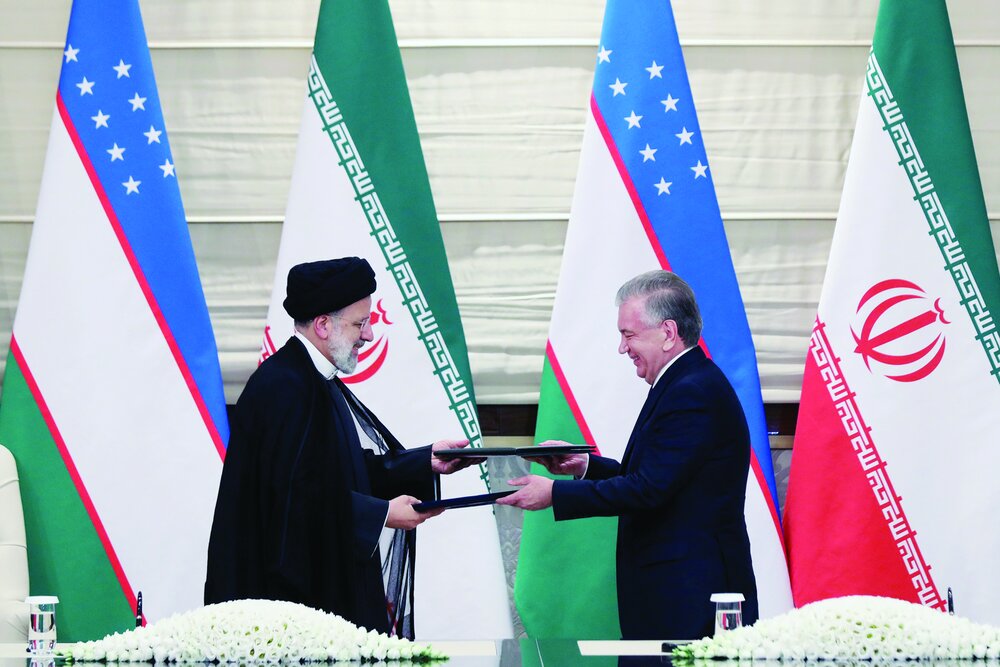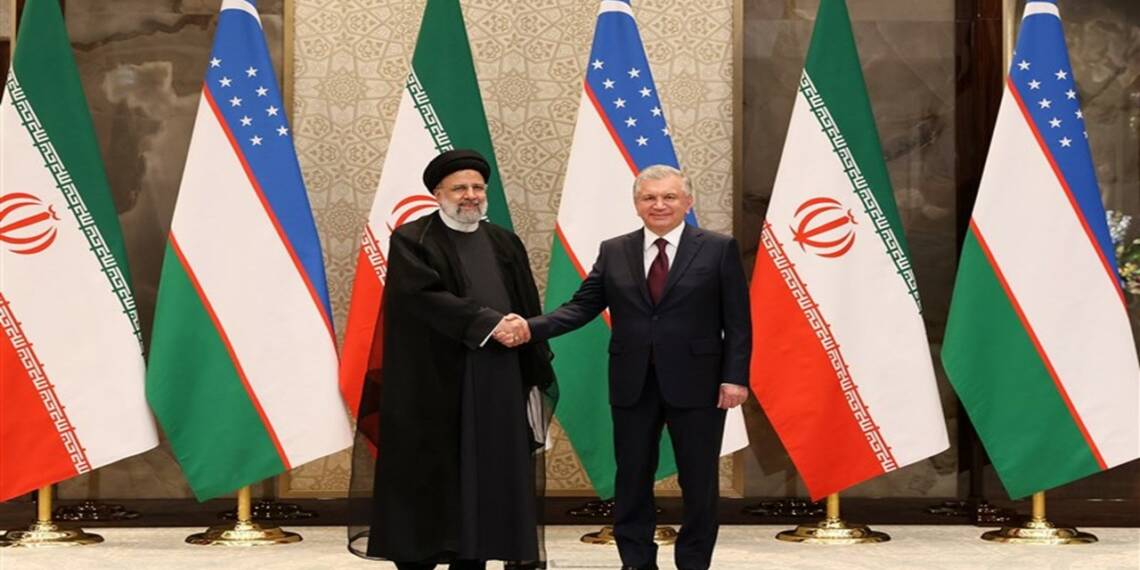Iran, a country with a rich history and a strategic location, has been making significant gains in Central Asia over the past few years. This development has been a cause for concern for Western powers who have long viewed the region as a key area of influence. Iran’s increasing presence in Central Asia poses a threat to Western interests in the region and could lead to a shift in the balance of power in this critical area.
Central Asia has long been a region of great interest to the West. It is an area rich in natural resources, including oil and gas, and is strategically located at the crossroads of Europe, Asia, and the Middle East. The region has been a focus of Western foreign policy for decades, with Western countries investing heavily in economic and military partnerships with countries in the region.
However, Iran’s recent gains in Central Asia have shifted the balance of power in the region, and this could have significant implications for Western interests. Iran is increasingly attractive to the landlocked Central Asian republics that are seeking redundant trade routes.
Read More: NATO fears losing out to Iran
Tashkent’s Plan
In June 2021, Tashkent hosted a conference to highlight Central Asia-South Asia connectivity via Afghanistan and Pakistan (Plan A). Two months later, the U.S. and NATO retreated from Afghanistan and the country plunged in chaos, so the republics had to consider alternatives. In February 2022, the Russia-Ukraine war forced Kazakhstan to develop a trans-Caspian route to avoid the effects of the Russian-Ukraine war, and the other republics followed suit.
Central Asia can now consider trading through Iran’s ports of Chabahar and Bandar Abbas. (In January 2022, Iran and Uzbekistan concluded an agreement to give Uzbekistan access to Chabahar port on the Gulf of Oman.) Iran can offer a space free of the violence by the Islamic State (IS) and the Pakistani Taliban (TTP) that plagues Afghanistan and Pakistan, organized and functioning government agencies, and ports adjacent to the markets of India (Chabahar) and the Persian Gulf (Bandar Abbas). Iran is also a large market of almost 90 million people. In addition to a well-developed internal transport system, Iran also hosts the International North–South Transport Corridor (INSTC), a 7,200 kilometer ship, rail, and road route for moving freight between India, Iran, Azerbaijan, Russia, Central Asia and Europe. The INSTC is considered “sanction proof” and is claimed to be “30 percent cheaper and 40 percent shorter than the traditional route via the Suez Canal.”

Iran’s Rise In Central Asia
You see, Iran’s increasing influence in the region is driven by a number of factors, including its economic and cultural ties with Central Asian countries, as well as its strategic alliances with Russia and China.
One key factor in Iran’s increasing influence in Central Asia is its economic ties with the region. Iran has long-standing economic partnerships with Central Asian countries, including Kazakhstan, Uzbekistan, and Turkmenistan. These partnerships have been strengthened in recent years through the development of new trade agreements and investment projects. Iran has also sought to increase its economic influence in the region by offering financial assistance and technical expertise to Central Asian countries. Iran’s cultural ties with Central Asia have also played a role in its increasing influence in the region. Iran and Central Asia share a common history and culture, and Iran has sought to leverage this shared heritage to strengthen its ties with Central Asian countries. This has been achieved through a range of cultural initiatives, including the establishment of cultural centers and the promotion of Persian language and literature in the region.
Iran’s strategic alliances with Russia and China have also played a role in its increasing influence in Central Asia. Russia and China are both major players in the region, and Iran has sought to align itself with these powers in order to gain leverage in Central Asia. This has been achieved through a range of initiatives, including joint military exercises, intelligence sharing, and the development of strategic infrastructure projects.

The growing influence of Iran in Central Asia poses a threat to Western interests in the region. Western countries have traditionally viewed the region as a key area of influence, and have invested heavily in economic and military partnerships with countries in the region. However, Iran’s increasing presence in Central Asia has undermined Western efforts to maintain its dominant position in the region. One of the key ways in which Iran’s increasing influence in Central Asia is hurting Western interests is through its impact on energy markets. Central Asia is a key supplier of oil and gas to Western countries, and any disruption to these supplies could have significant implications for Western economies. Iran’s growing influence in the region has given it greater leverage over Central Asian energy supplies, and this could lead to increased tensions between Iran and the West.
Iran’s growing influence in Central Asia also poses a threat to Western security interests in the region. Iran has long been seen as a destabilizing force in the Middle East, and its increasing presence in Central Asia could further destabilize the region. This could lead to increased tensions between Iran and neighboring countries, as well as between Iran and Western powers.
In addition, the Shiite nation has seen some unprecedented regional realignments in the recent months. Iran and longtime rival, the Kingdom of Saudi Arabia, recently announced they would re-establish full diplomatic relations and reopen embassies within sixty days, thanks to China’s mediation. The news was followed by the Saudi finance minister who said Saudi Arabia could start investing in Iran “very quickly.” Days later, Saudi Arabia’s King Salman invited Iran’s president, Ebrahim Raisi, to visit the kingdom and Iran readily accepted the invitation. Also in March, Iran formalized ties with the Taliban government in Afghanistan by turning over the Afghan embassy in Tehran to diplomats from the Taliban.
Read More: A BRICSy Middle East! Raisi and MBS join forces leaving Biden out of equation
Besides, the foreign minister of the Republic of Uzbekistan met Iran’s ministers of Foreign Affairs, and Industry, Mines and Trade, and the parties announced efforts to double trade turnover to $1 billion, and to foster business links and people-to-people ties. The ministerial meetings were the follow-on to the September 2022 sit-down between Uzbek president Shavkat Mirziyoyev and Iran’s Raisi, where they concluded 17 agreements in areas such as energy, transport, and agriculture, and discussed how to double trade from the current $500 million annually.
Iran’s increasing influence in Central Asia is a cause for concern for Western powers. Iran’s economic and cultural ties with the region, as well as its strategic alliances with Russia and China, have given it a significant presence in Central Asia. This has undermined Western efforts to maintain its dominant position in the region, and could lead to increased tensions between Iran and the West. Western powers must take steps.







